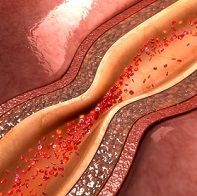Article
FDA Grants Fast Track to PLX-PAD for Treatment of Critical Limb Ischemia
Author(s):
The ongoing phase 3 trial has been selected for accelerated approval pathways in the US and Europe.

The US Food and Drug Administration (FDA) has granted fast track designation to the ongoing pivotal phase 3 study of PLX-PAD cells for the treatment of Critical Limb Ischemia (CLI) in patient’s ineligible for revascularization, Pluristem Therapeutics announced.
With fast track designation, there is an increased possibility for a priority review by the FDA of PLX-PAD cells. The ongoing phase 3 trial has been selected for accelerated approval pathways in both the US and Europe.
“We are extremely pleased with the FDA’s decision to grant fast track designation to PLX-PAD in the treatment of CLI,” Zami Aberman, chairman and co-chief executive officer of Pluristem, said. “Up to 40% of patients with CLI are ineligible for revascularization and are at high risk of amputation and death within the first year of diagnosis. We are working tirelessly to provide a cell therapy that will address this severe unmet medical need.”
The European Medicines Agency (EMA) has included PLX-PAD in its Adaptive Pathways program, which hopes to improve timely access for patients to new medicines. Positive results from an interim analysis following treatment of half (125) of the study’s population may lead to early conditional marketing authorization.
PLX-PAD cells respond to chemical distress signals from tissues that are damaged by ischemia, muscle trauma or inflammation by secreting a range of therapeutic proteins triggering the body’s own repair mechanisms. The secreted proteins drive the body to grow collateral blood vessels bringing oxygenated blood to ischemic tissue, heal damaged muscle and dampen inflammation.
In Japan, the Pharmaceuticals and Medical Devices Agency (PDMA) accepted PLX-PAD for the treatment of CLI into its accelerated regulatory pathway for regenerative therapies. The agency also agreed on the design of a single study of 75 patients that could lead to early conditional marketing approval and reimbursement.
About 5 to 6 million people in the US and Europe suffer from CLI, with the number expected to grow as the rate of patients affected by diabetes increases.
While treatments are available to relieve pain, and provide local ulcer care, many patients will ultimately need revascularization with vascular bypass surgery or an endovascular procedure, attempting to prevent major limb amputation and prolong survival. CLI patients who cannot undergo revascularization procedures have a severe unmet medical need.
Up to 40% of patients are unsuitable for revascularization and experience up to a 40% amputation rate at 1 year.
A press release regarding the study was made available.





